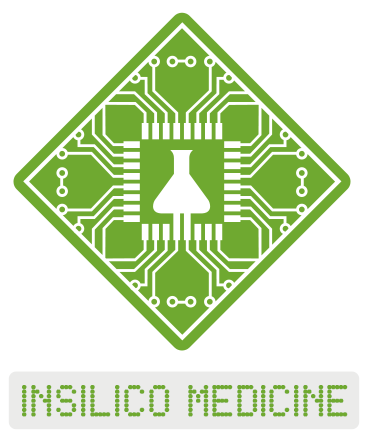Artificial Intelligence for
Drug Discovery and
Personalized Research for ALS
Drug Discovery and
Personalized Research for ALS
About ALS
Amyotrophic Lateral Sclerosis is a rare disease which affects nerves and muscle function. There are around 6,000 people in the U.S.
who are diagnosed with ALS every year.
Riluzole (Rilutek) and Radicava (Edaravone) are the only FDA-approved medications that can be used to treat ALS. Unfortunately, the treatment can only slow down the progression of the disorder. It can't reverse the damage seen in ALS and only some of the patients respond to the treatment.
There is an urgent need to develop new treatments for the disease.
who are diagnosed with ALS every year.
Riluzole (Rilutek) and Radicava (Edaravone) are the only FDA-approved medications that can be used to treat ALS. Unfortunately, the treatment can only slow down the progression of the disorder. It can't reverse the damage seen in ALS and only some of the patients respond to the treatment.
There is an urgent need to develop new treatments for the disease.
Insilico Medicine is working with one of its collaborators to investigate the causes of the disease and developing new treatments for ALS.
The collaborator is directly working with an ALS patient who has a unique genetic mutation.
Insilico Medicine used its pathway activation analysis algorithms to identify the dysregulated pathways that were associated with the patient's ALS disease. Insilico Medicine identified the potential new treatments for the patient by applying deep learning drug scoring algorithms. The collaborator is validating the newly identified treatments before they may be used to treat the patient
(some of the medications were approved by FDA for the treatment of other diseases).
The collaborator is directly working with an ALS patient who has a unique genetic mutation.
Insilico Medicine used its pathway activation analysis algorithms to identify the dysregulated pathways that were associated with the patient's ALS disease. Insilico Medicine identified the potential new treatments for the patient by applying deep learning drug scoring algorithms. The collaborator is validating the newly identified treatments before they may be used to treat the patient
(some of the medications were approved by FDA for the treatment of other diseases).
ABOUT Insilico Medicine
Insilico Medicine, Inc. is a bioinformatics company located at the Emerging Technology Centers at the Johns Hopkins University Eastern campus in Baltimore. The company utilizes advances in genomics,
big data analysis, and deep learning for in silico drug discovery
and drug repurposing for aging and age-related diseases.
The company pursues internal drug discovery programs in cancer, Parkinson's Disease, Alzheimer's Disease, sarcopenia,
and geroprotector discovery.
big data analysis, and deep learning for in silico drug discovery
and drug repurposing for aging and age-related diseases.
The company pursues internal drug discovery programs in cancer, Parkinson's Disease, Alzheimer's Disease, sarcopenia,
and geroprotector discovery.
OUR TOOLS

Signaling Pathway Activation Analysis
Drug Discovery Engine
Predictor of Phase I/II Clinical Trials

In silico Pathway Activation Network Decomposition Analysis (iPANDA) as a method for biomarker development
https://www.nature.com/articles/ncomms13427
Signalling pathway activation analysis is a powerful approach for extracting biologically relevant features from large-scale transcriptomic and proteomic data. However, modern pathway-based methods often fail to provide stable pathway signatures of a specific phenotype or reliable disease biomarkers. We introduced the in silico Pathway Activation Network Decomposition Analysis (iPANDA) as a scalable robust method for biomarker identification using gene expression data. The iPANDA method combines precalculated gene coexpression data with gene importance factors based on the degree of differential gene expression and pathway topology decomposition for obtaining pathway activation scores. Using Microarray Analysis Quality Control (MAQC) data sets and pretreatment data on Taxol-based neoadjuvant breast cancer therapy from multiple sources, we demonstrated that iPANDA provides significant noise reduction in transcriptomic data and identifies highly robust sets of biologically relevant pathway signatures. We successfully applied iPANDA for stratifying breast cancer patients according to their sensitivity to neoadjuvant therapy.
https://www.nature.com/articles/ncomms13427
Signalling pathway activation analysis is a powerful approach for extracting biologically relevant features from large-scale transcriptomic and proteomic data. However, modern pathway-based methods often fail to provide stable pathway signatures of a specific phenotype or reliable disease biomarkers. We introduced the in silico Pathway Activation Network Decomposition Analysis (iPANDA) as a scalable robust method for biomarker identification using gene expression data. The iPANDA method combines precalculated gene coexpression data with gene importance factors based on the degree of differential gene expression and pathway topology decomposition for obtaining pathway activation scores. Using Microarray Analysis Quality Control (MAQC) data sets and pretreatment data on Taxol-based neoadjuvant breast cancer therapy from multiple sources, we demonstrated that iPANDA provides significant noise reduction in transcriptomic data and identifies highly robust sets of biologically relevant pathway signatures. We successfully applied iPANDA for stratifying breast cancer patients according to their sensitivity to neoadjuvant therapy.



In silico Pathway Activation Network Decomposition Analysis (iPANDA) as a method for biomarker development (Nature Comms, 2016)
Deep Learning Applications for Predicting Pharmacological Properties of Drugs and Drug Repurposing Using Transcriptomic Data (ACS Editors' Choice Award)
Deep biomarkers of human aging: Application of deep neural networks to biomarker development
Integrated deep learned transcriptomic and structure-based predictor of clinical trials outcomes
Deep Learning Applications for Predicting Pharmacological Properties of Drugs and Drug Repurposing Using Transcriptomic Data (ACS Editors' Choice Award)
Deep biomarkers of human aging: Application of deep neural networks to biomarker development
Integrated deep learned transcriptomic and structure-based predictor of clinical trials outcomes
KEY PUBLICATIONS
SPONSORED RESEARCH

Bioinformatics Analysis
Cutting-Edge AI Research
Personalized Research
PERSONALIZED SCIENCE

CONTACT US
E-mail: zhu@deeppharma.com
